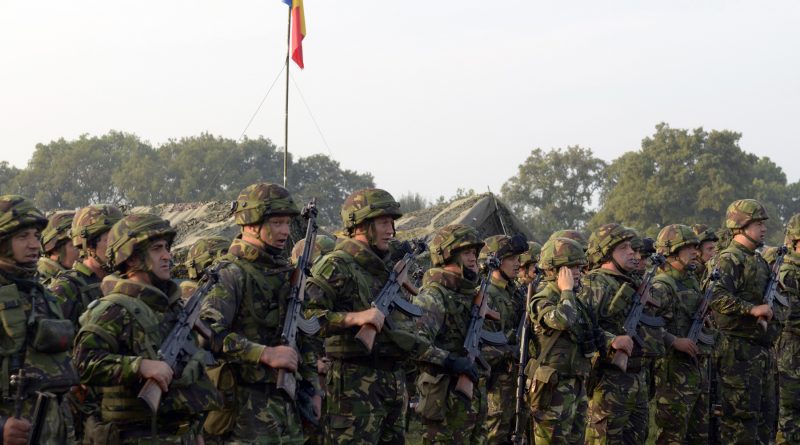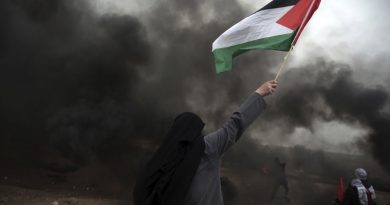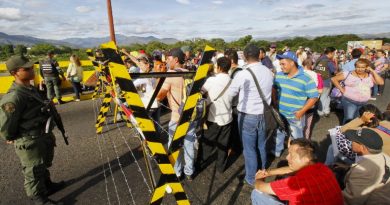Fighting Along Azerbaijan-Armenia Border Leaves Over 100 Dead
Joseph Brennan
Staff Writer
On September 12, more than 100 people were killed when fighting erupted along the Armenia-Azerbaijan border surrounding the disputed Nagorno-Karabakh region, reports The Washington Post. In a series of attacks by “heavy artillery, drones, and large-caliber weapons,” Azerbaijan attacked Armenian troops along the border in response to what they claimed were military provocations from Armenia, according to the United Nations. The UN reports that eight civilians have been wounded since the start of the attacks.
Armenia claims that Azerbaijan initiated the fighting unprovoked. Azerbaijan has claimed the opposite saying their attacks were in retaliation to Armenian aggression. The UN has reviewed numerous scenarios that could arise because of the conflict, one of which is the destabilization of the Nagorno-Karabakh region. There has not been direct UN involvement but UN missions in both states are cooperating and are ready to communicate about humanitarian issues.
According to NPR, Nancy Pelosi has publicly stated that Azerbaijan is to blame for the attacks, a statement which Azerbaijan deemed escalatory. NPR also reports that U.S. Secretary of State Antony Blinken asked the Azerbaijani president to cease “hostilities” against Armenia.
Due to their status as former USSR states, Armenia and Azerbaijan are still closely associated with Russia, which has played a mediator role between Baku and Yerevan in the past. While Russia has close ties to both countries, it cannot militarily involve itself in the conflict due to its current war on Ukraine. Armenia is appealing for military aid while Russia is appealing to both states for calm, says NPR.
Turkey may also get involved in the conflict because of its close ties to Azerbaijan, reports Al Jazeera. With both Turkey and Russia attempting to play mediator roles, both countries may be dragged into further geopolitical entanglements that threaten to worsen conditions on the ground, especially for civilians caught in the crosshairs.
Nagorno-Karabakh is a territory that is internationally recognized as a part of Azerbaijan but populated primarily by ethnic Armenians. This territory has been the site of two wars between Azerbaijan and Armenia since 1994, according to the Carnegie Endowment for International Peace. The dispute has resulted in the displacement of many families and civilians, specifically in the city of Shusha, within the disputed Nagorno-Karabakh region. According to Time, the most serious fighting occurred during the collapse of the Soviet Union when Armenian forces displaced 600,000 Azeris between 1988 and 1994. An Azerbaijani invasion in 2020 recapturing Shusha followed. To stabilize its control over the Nagorno-Karabakh region, Azerbaijan is looking to establish Shusha as the “cultural capital” of the region regardless of the majority population of ethnic Armenians, says Time.
Armenia and Azerbaijan have previously engaged in conflicts during 2016 and 2020, known as the Karabakh Wars, the latter killing 6,500 people in under 2 months, says Al Jazeera. During this second war, Russia brokered a ceasefire deal which sent 2,000 peacekeepers to the Nagorno-Karabakh region. Due to Turkey’s alliance with Azerbaijan, it subsequently closed its borders with Armenia.
Since the 2020 war, the two sides have attempted to come to a settled resolution and even established a hotline for direct communication between the defense ministers of both Armenia and Azerbaijan, according to Carnegie. Also reported by Carnegie is that in the buildup to the 2022 fighting, Azerbaijan had been stockpiling military equipment along the border, a tactic similar to those the Russians used against Ukraine. While both sides try to resolve the conflict, a dangerous geopolitical game in the Caucuses between foreign powers threatens to make matters worse, especially as an impending energy crisis makes the natural resources of the region even more valuable.



